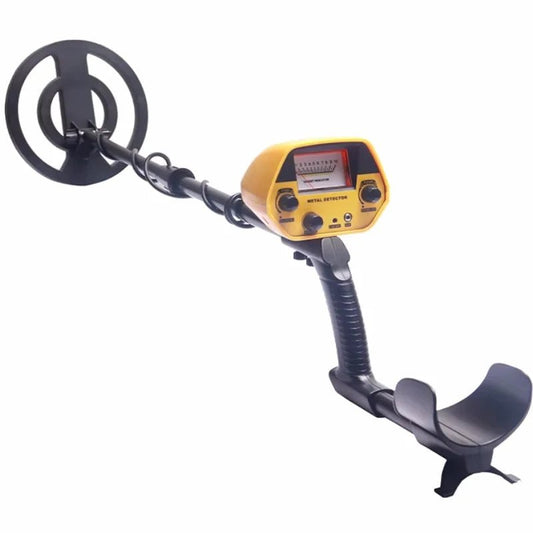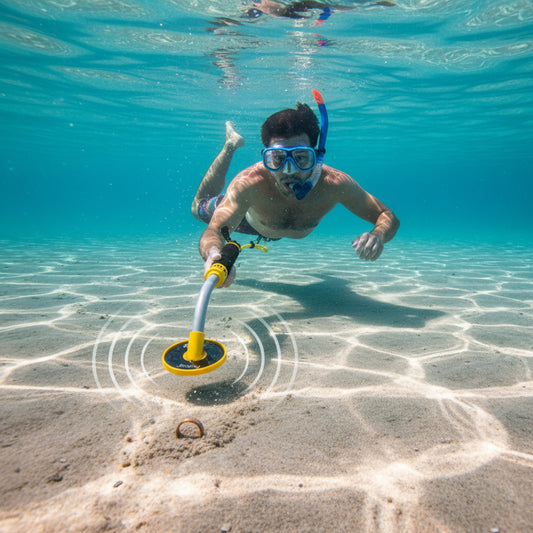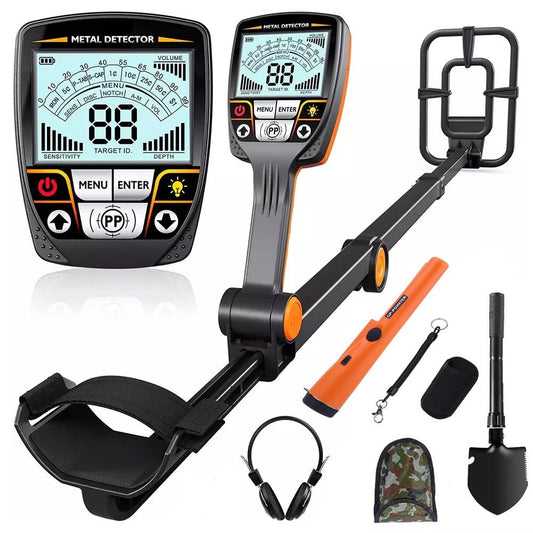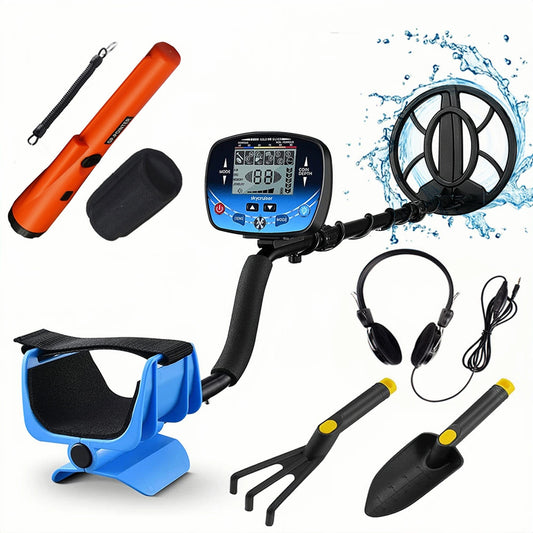
Can You Keep What You Find With a Metal Detector? A Comprehensive Guide
Share
Metal detecting is an exciting hobby that combines the thrill of treasure hunting with outdoor exploration.
One of the most common questions newcomers ask is, "Can you keep what you find with a metal detector?"
The answer isn't always straightforward and depends on various factors. In this comprehensive guide, we'll explore the legal, ethical, and practical considerations surrounding metal detector finds.
Understanding the Basics
Before delving into the specifics, it's important to understand that the rules for keeping metal detector finds can vary widely depending on your location, the type of land you're searching, and the nature of the find itself. Generally, the principle of "finders keepers" doesn't always apply in the world of metal detecting.
Legal Considerations For Metal Detecting
Public Land

When metal detecting on public land, the rules can be complex:
- National Parks: In the United States, metal detecting is generally prohibited in National Parks to preserve historical and natural resources. The National Park Service provides detailed information on these regulations.
- State Parks: Rules vary by state. Some allow metal detecting with permits, while others prohibit it entirely. Always check with the specific park's management before detecting.
- Beaches: Many public beaches allow metal detecting, but local ordinances may restrict or prohibit the activity. The American Metal Detecting Association offers resources on beach detecting laws.
- Historical Sites: Detecting on registered historical sites is often illegal without proper permits and supervision.
Private Property
On private property, the general rule is:
- Always obtain permission from the property owner before detecting.
- Agree in advance on how any finds will be split or handled.
- Respect the owner's decisions regarding any discoveries.
Treasure Trove Laws
In some jurisdictions, "treasure trove" laws may apply to valuable finds. These laws often require reporting significant discoveries to authorities. For example, in the UK, the Treasure Act 1996 mandates reporting potential treasure finds.
Ethical Considerations
Even when legally allowed to keep finds, ethical detectorists often follow a code of conduct:
- Report significant historical or archaeological finds to local authorities or museums.
- Avoid damaging the environment or disturbing wildlife.
- Fill in all holes and leave the area as you found it.
- Respect private property and "No Trespassing" signs.
The Federation of Metal Detector and Archaeological Clubs provides a comprehensive code of ethics for responsible detecting.
Types of Finds and Their Implications

Coins and Modern Objects
Generally, you can keep common coins and modern objects found while detecting. However, be aware of the following:
- Some countries have laws about finding and keeping money, even coins.
- In the US, you're typically allowed to keep modern coins you find.
Jewelry
For jewelry finds:
- If possible, try to locate the owner of recently lost items.
- Valuable or antique jewelry might fall under treasure trove laws in some areas.
- Consider reporting high-value finds to local authorities.
Historical Artifacts
Historical artifacts require special consideration:
- Many countries have laws protecting archaeological finds.
- In the US, the Archaeological Resources Protection Act governs the discovery of artifacts on federal lands.
- Report potentially significant historical finds to local museums or archaeological societies.
Gold and Precious Metals
Laws regarding gold and precious metal finds can be complex:
- In the US, you can generally keep gold nuggets found on public land, subject to certain limitations.
- Some countries require reporting or surrendering precious metal finds.
- Check local laws and regulations before searching for gold.
Best Practices for Metal Detecting

To ensure you're detecting responsibly and legally:
- Research local laws and regulations before detecting in a new area.
- Join a local metal detecting club for guidance and support. The Metal Detecting Association of America offers a club directory.
- Obtain necessary permits or permissions (necessary for particular states).
- Keep detailed records of your finds and where they were discovered.
- Consider donating significant historical finds to local museums.
The Importance of Documentation
Keeping thorough records of your finds is crucial:
- Document the location, date, and circumstances of each significant find.
- Take clear photographs of important discoveries.
- This documentation can be valuable if questions arise about the legality of your finds.
Reporting Significant Discoveries
If you make a potentially significant discovery:
- Stop digging immediately to preserve the site.
- Document the location and take photos if possible.
- Contact local authorities, museums, or archaeological societies for guidance.
- Follow their instructions regarding the find.
Conclusion: Responsible Detecting
While the excitement of keeping your discoveries is part of metal detecting's appeal, it's crucial to approach the hobby responsibly. By understanding and following local laws, respecting property rights, and adhering to ethical guidelines, you can enjoy metal detecting while preserving historical and natural resources.
Remember, the true value of metal detecting often lies not in the monetary worth of finds, but in the thrill of discovery, the connection to history, and the enjoyment of outdoor exploration. By practicing responsible metal detecting, you contribute to the positive image of the hobby and help ensure its continuation for future generations.
Whether you're searching for modern coins on a beach, exploring old homesteads for historical relics, or panning for gold in a stream, always prioritize legality, ethics, and respect for both property and history. With this approach, you can confidently enjoy your metal detecting adventures, knowing you're contributing positively to both the hobby and your community.




